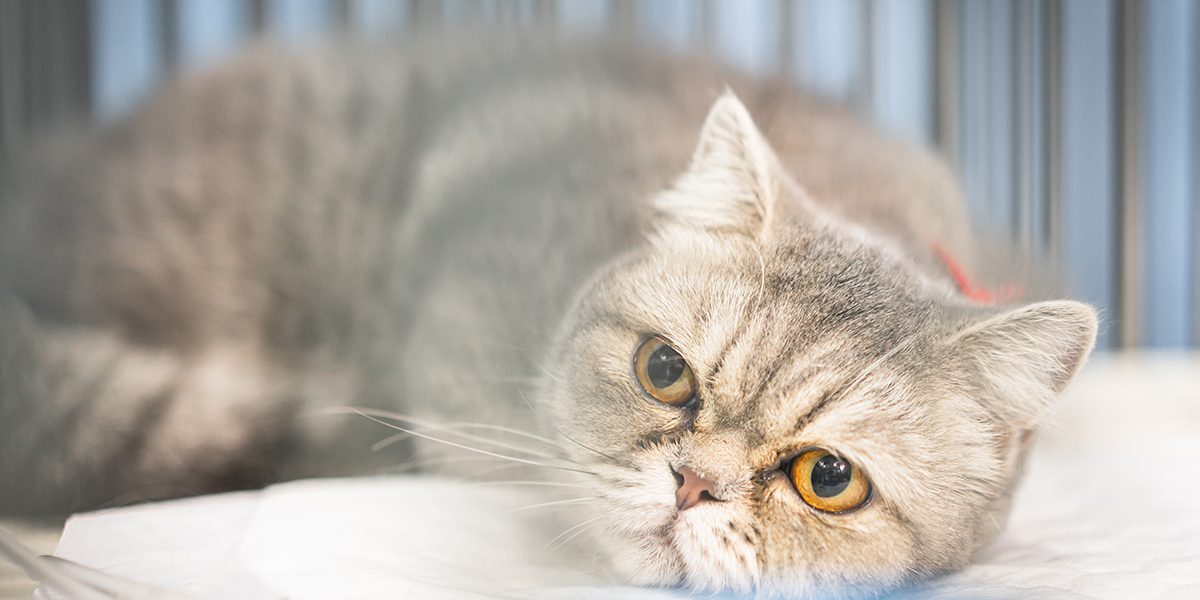
When Quiet Hurts: Recognizing Pain in Cats
Cats are masters of pretending everything is fine.
Even when they’re hurting, they often keep purring, grooming, or napping in the sun as if nothing’s wrong. That’s part of what makes them such mysterious little companions—but it also means pain in cats is one of the most under-recognized problems we in cats.
When a cat stops playing, hides more, or “just isn’t acting like themselves,” it’s easy to assume it’s personality or age. But just like people, cats can develop arthritis, back pain, dental pain, and nerve pain—and they need help managing it.
Subtle Signs of Pain Pet Owners Often Miss
Unlike dogs, cats rarely limp when they hurt. Here are the quieter clues that your cat might be uncomfortable:
- Avoiding jumping or climbing
Cats with arthritis in their hips, knees, or spine often stop jumping up on counters or furniture—or start missing when they try. - Hesitation before movement
That pause before leaping, or the “think about it” moment at the stairs, can indicate stiffness or joint pain. - Circling or difficulty getting comfortable
Many cats with back or joint pain will circle, lie down, get back up, and repeat until they find the least painful position. - Sleeping more or hiding
Cats in pain often withdraw to quiet places and sleep more, conserving energy. - Change in grooming habits
Painful cats may stop grooming certain areas (especially their back or hips) or over-groom a painful joint, leaving thin hair patches. - Restlessness
Pacing or sleeplessness can also be a sign they can’t get comfortable. - Change in mood or interaction
If your cat suddenly hisses, growls, or avoids being picked up or being around siblings, it may be from pain—not attitude. - Decreased appetite or litter box changes
Painful cats may avoid bending to eat, or skip the litter box because stepping in and out hurts their joints.
Why Pain Management Is Trickier for Cats
When it comes to pain control, cats aren’t just small dogs.
Their kidneys and liver process medications differently, making many of the common anti-inflammatories used in people and dogs unsafe for long-term use in cats. This can make chronic pain—especially from arthritis—harder to treat.
But the good news is, we have safe and effective options that work beautifully for most cats.
Pain Relief Options for Cats at PetMed of Key West
- Dasuquin Advanced for Cats – A joint supplement containing glucosamine, chondroitin, and ASU to support cartilage and reduce inflammation.
- Omega Fatty Acids – Natural anti-inflammatory support that helps joints, skin, and overall health.
- Cold Laser Therapy – Non-invasive, drug-free pain relief that reduces inflammation and speeds healing
- Gabapentin – A gentle, effective medication that targets nerve and chronic pain, and can also reduce stress before vet visits.
- CBD (ElleVet) – A veterinary-formulated CBD that has been shown to reduce pain and inflammation safely in cats
- Solensia – A once-monthly injection that targets arthritis pain right at the source, restoring mobility and comfort without daily medication.
For many cats, Solensia is the breakthrough we’ve been waiting for. It helps them move, stretch, and play again—without upsetting their stomach or kidneys.
When Our Cats Hurt, We Feel It Too
Our cats may not yelp or limp, but when they stop sleeping on your lap, stop greeting you at the door, or hide in quiet corners of the house, something deeper is happening. Pain changes more than their movement—it changes their personality and their relationship with you.
The best part? You can help bring them back.
If you’ve noticed your cat slowing down, acting withdrawn, or struggling with mobility, call us at (563) 583-8387 or schedule an appointment online. We’ll help find the best plan to keep your feline friend comfortable and close—because every quiet purr matters.
